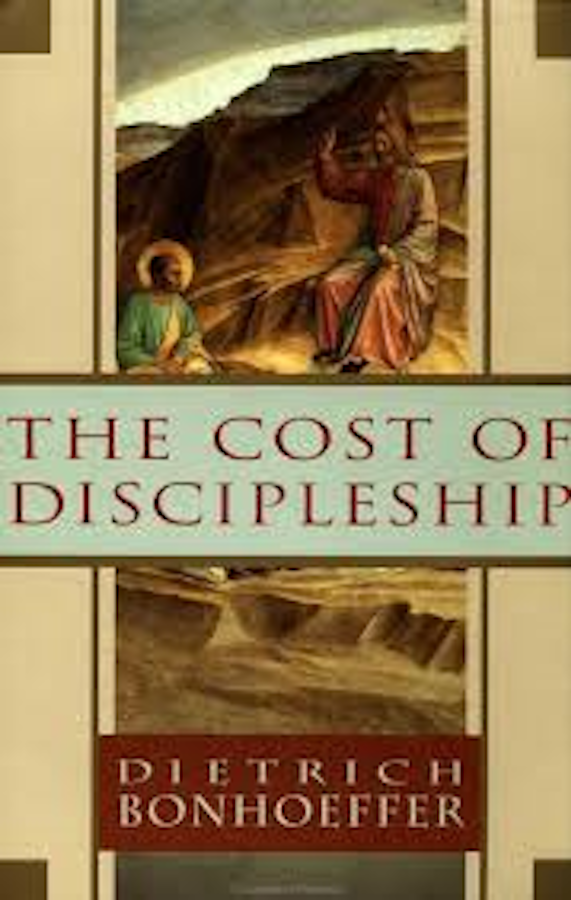
The Cost of Discipleship
by Dietrich Bonhoeffer
What can the call to discipleship, the adherence to the word of Jesus, mean today to the businessman, the soldier, the laborer, or the aristocrat? What did Jesus mean to say to us? What is his will for us today? Drawing on the Sermon on the Mount, Bonhoeffer answers these timeless questions by providing a seminal reading of the dichotomy between ”cheap grace” and ”costly grace.” The Cost of Discipleship is a compelling statement of the demands of sacrifice and ethical consistency from a man whose life and thought were exemplary articulations of a new type of leadership inspired by the Gospel, and imbued with the spirit of Christian humanism and a creative sense of civic duty.
1995
Recommendations
"When Christ calls a man, he bids him come and die." With these words, in The Cost of Discipleship, Dietrich Bonhoeffer gave powerful voice to the millions of Christians who believe personal sacrifice is an essential component of faith. Bonhoeffer, a German Lutheran pastor and theologian, was an exemplar of sacrificial faith: he opposed the Nazis from the first and was eventually imprisoned in Buchenwald and hung by the Gestapo in 1945. The Cost of Discipleship, first published in German in 1937, was Bonhoeffer's answer to the questions, "What did Jesus mean to say to us? What is his will for us to-day?" Bonhoeffer's answers are rooted in Lutheran grace and derived from Christian scripture (almost a third of the book consists of an extended meditation on the Sermon on the Mount). The book builds to a stunning conclusion: its closing chapter, "The Image of Christ," describes the believer's spiritual life as participation in Christ's incarnation, with a rare and epigrammatic confidence: "Through fellowship and communion with the incarnate Lord," Bonhoeffer writes, "we recover our true humanity, and at the same time we are delivered from that individualism which is the consequence of sin, and retrieve our solidarity with the whole human race."
Michael Joseph Gross

